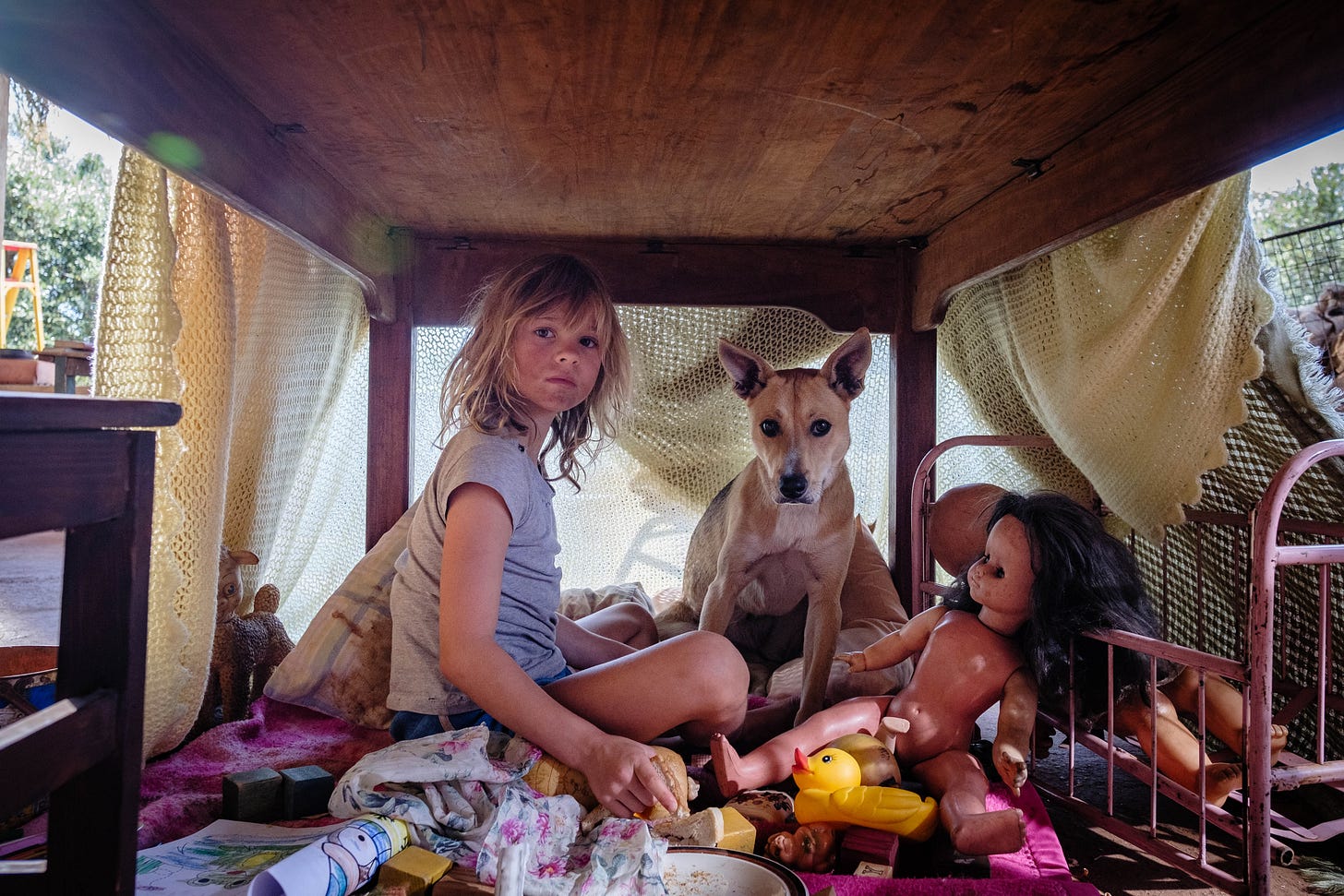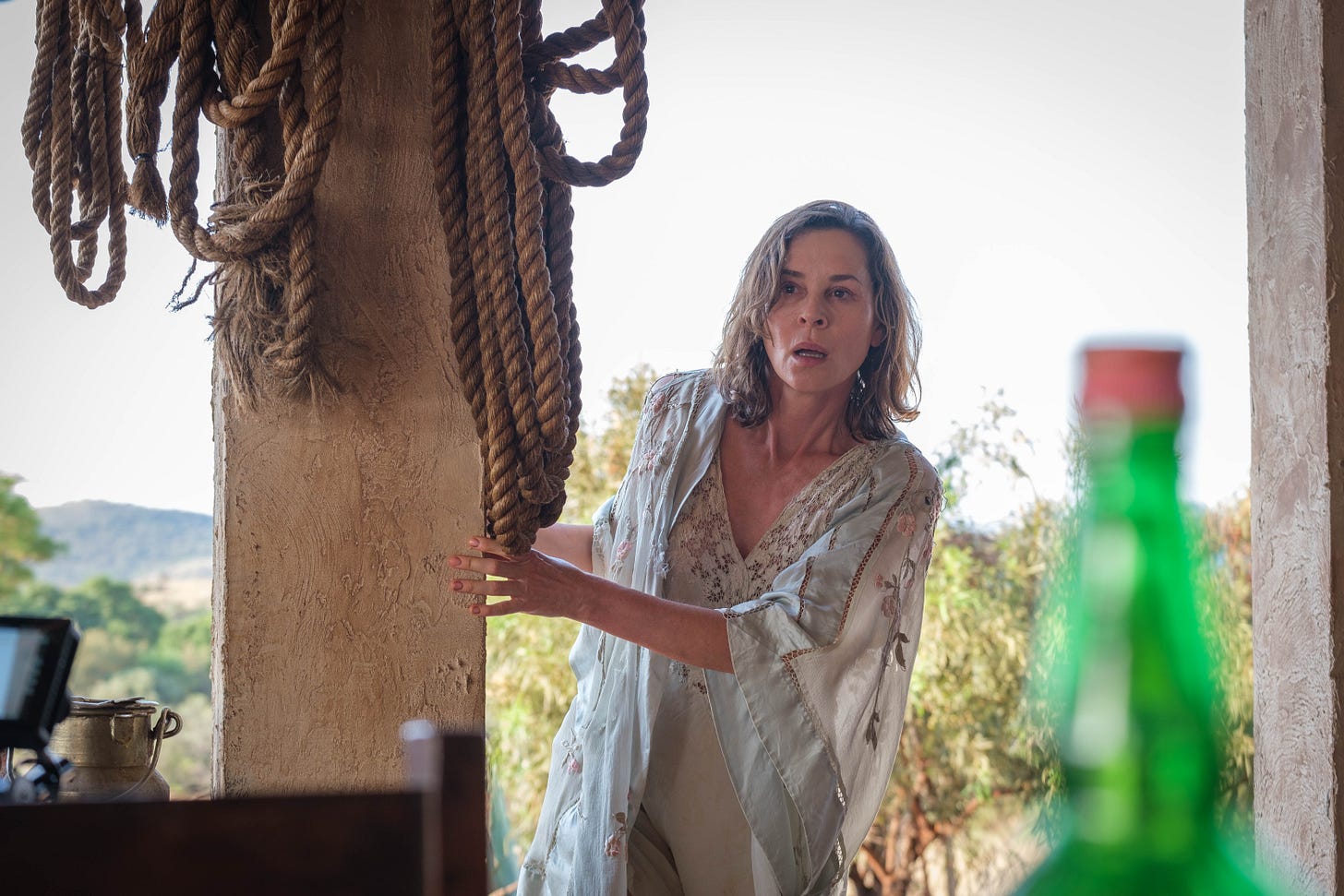Movie review: 'Don't Let's Go to the Dogs Tonight'
Seven-year-old Lexi Venter delivers a wild, unforgettable performance

By some measurements, Bobo is having an idyllic childhood. The eight-year-old girl is allowed to run free in a beautiful landscape, exploring the natural world, meeting with friends, playing with her toys.
But that beautiful landscape is the African nation of Rhodesia in 1980 (soon to be renamed Zimbabwe). Bobo’s family is among the white settlers who have controlled the country under minority rule, but whose presence grows more and more precarious amid the anticolonial rise of Robert Mugabe.
Both things are true in “Don’t Let’s Go to the Dogs Tonight,” an adaptation of New Yorker critic Alexandra Fuller’s 2001 memoir. It's a harrowing political thriller about a white ruling class on the wrong side of a populist upheaval. And it’s a deeply-felt drama about how childhood endures in even the worst of circumstances.
The film’s centerpiece is an absolutely phenomenal debut performance by seven-year-old Lexi Venter as Bobo. She reminded me of young Christian Bale in Steven Spielberg’s “Empire of the Sun,” playing a child forced to grow up in some ways but unable to do so in others. Venter never seems like she’s acting, instead inhabiting the essential contradictions of the young girl in an unvarnished, unpredictable performance.
The perpetually dirty-faced Bobo moves through her world with curiosity and defiance, riding through the forest on a motorbike, pellet gun strapped to her back, occasionally sneaking cigarettes when her parents aren’t looking. But she’s also very much a baby-faced little girl, of the sort who innocently asks the questions that people aren’t supposed to ask. “Are we racists?” she asks her mother at one point.

Her mother, played by Embeth Davidtz (who also wrote and directed the film) isn’t much help. Alcoholic and driven wild with grief after the death of two of Bobo’s siblings, her mother stubbornly refuses to leave the farm even as revolutionaries amass in the hills around them. For her, their homestead is both a birthright and a curse she can’t conceive of giving up.
“Don’t Let’s Go” observes the strange, affecting ways this family hangs onto normalcy until the very end, how they listen to ‘70s pop songs during the day and sleep with carbine rifles at night. Davidtz is frighteningly effective as a parent pushed to the brink, and Zikhona Bali is affecting as the African nanny who shows kindness to Bobo, even when she doesn’t deserve it.
The film’s intense performances play out against the gorgeous landscape of Africa (it was filmed in South Africa), and Davidtz lingers on the textures and colors of the place. We understand why these British settlers, who live inside bubbles of Western privilege, don’t belong here. But we also understand why they want to stay. In a way, the adults are just as much children as Bobo, willfully ignorant of the world around them and their impact on it.
With the feral Bobo as our guide, "Don' t Let’s Go to the Dogs Tonight” locks us into this time and place, full of wonder and danger. For its writer-director, and especially its lead actor, it is a haunting and unforgettable debut.
“Don’t Let’s Go to the Dogs Tonight” opens Friday in theaters. In Madison, it will play at AMC Fitchburg 18 and Marcus Point.


